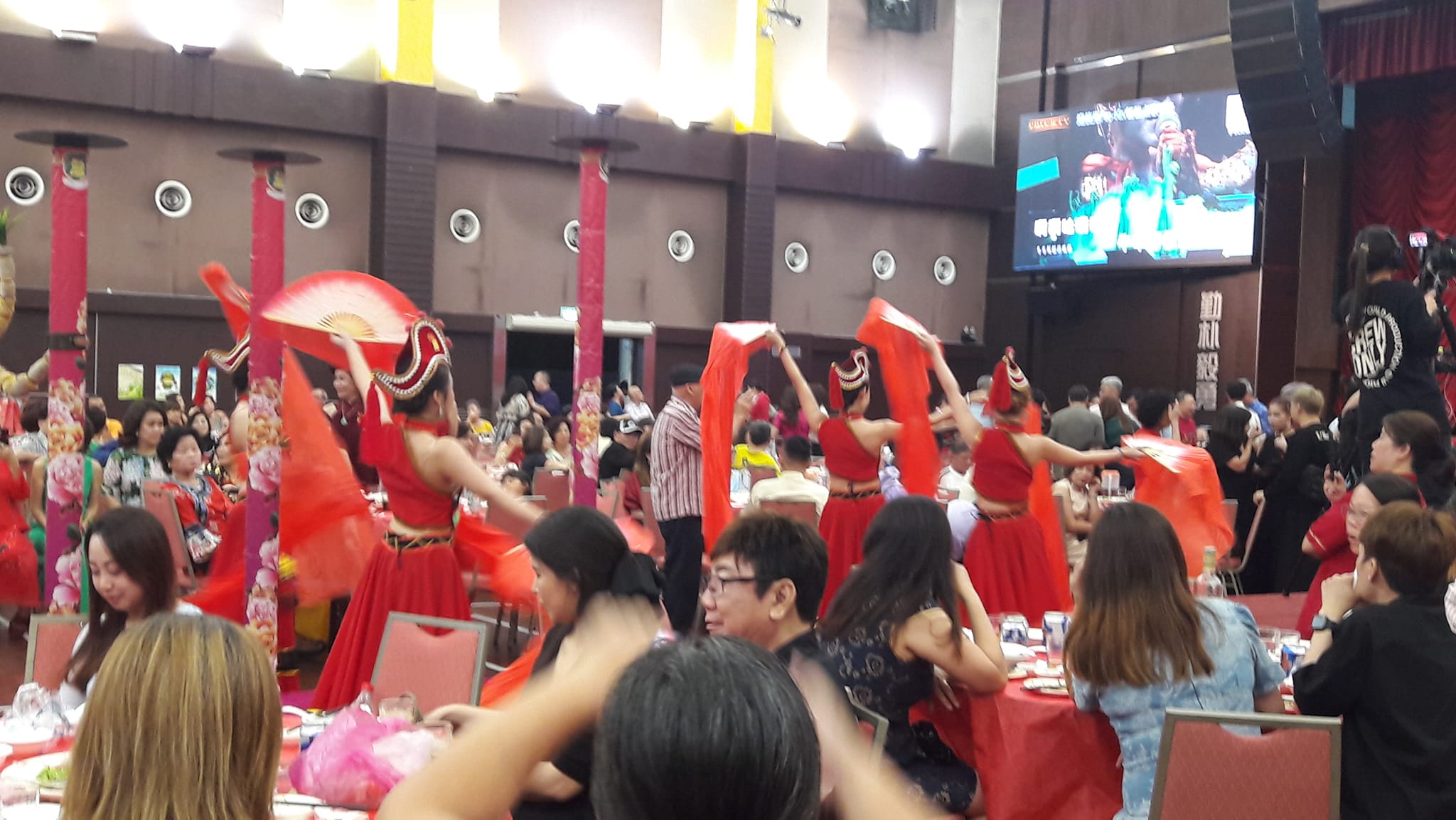Why do more Malay parents send their children to vernacular school?
14 May 2024 • 9:00 AM MYT

Moy Kok Ming
Retired government servant and currently an active NGO worker

Revenue from the rental of school hall is for the upgrade of Chinese school facilities. Image credit: Moy Kok Ming
Recently, in the Kuala Kubu Baru state election campaign, the PH candidate Pang Sock Tao was ridiculed by her opponent because she came from a vernacular (Chinese) school. However, she showed in her Facebook that she procured all distinctions in her UPSR and SPM examinations. Vernacular schools do produce brilliant students who excel in Malay Language as well as English. The students are as patriotic as national school students.
Recently, in the Kuala Kubu Baru state election campaign, the PH candidate Pang Sock Tao was ridiculed by her opponent because she came from a vernacular (Chinese) school. However, she showed in her Facebook that she procured all distinctions in her UPSR and SPM examinations. Vernacular schools do produce brilliant students who excel in Malay Language as well as English. The students are as patriotic as national school students.

School directors, alumni and Chinese community contributed to the development of Chinese school. Image credit: Moy Kok Ming
In Malaysia, there has been a notable phenomenon whereby many non-Chinese parents, including Malay parents send their children to vernacular (Chinese) schools in rural and urban areas. This choice is influenced by several factors, reflecting both practical considerations and cultural dynamics.
Chinese schools have gained a reputation for academic excellence, especially in science and mathematics. Parents perceive them as institutions that prioritize discipline, hard work and rigorous learning.
The curriculum in Chinese schools emphasizes core subjects such as mathematics, science, and languages. Students are often challenged to excel academically. In fact, students from these school are especially good in mathematics. Some people attributed this to the Chinese counting system, which is easier than most language of the world. For instance, 9x9=81. In Chinese it is jiu-jiu bashiyi, but in Bahasa Malaysia it will be Sembilan-sembilan lapan puloh satu. Using Chinese language, one can remember more easily.
The environment in Chinese schools is more well-disciplined. For instance, all male and female in most Chinese schools are not allowed to have long hair. (e.g. Yu Hua Primary and Secondary School, Kajang). Probably, this will save the students’ time in caring for their hair and have more time in their study. The male students’ short hair almost suits the military requirement and some taller upper form male students look like soldiers. Such environment inspires students to endeavour for high attainment. Consequently, their accomplishments appeal to all parents seeking quality education for their children.
Almost all Chinese school have a board of directors to manage their school, further supported by the alumni. Thus, Chinese schools tend to have better facilities and modern infrastructure. Some in larger cities like Kuala Lumpur, Penang and Johor Bharu have 5-star halls which contribute financially to the school by rental to organizations who host events or dinners. Well-equipped classrooms, libraries, science labs, and sports facilities contribute to a conducive learning environment.
The commitment of the directors (dongshi) and alumni to maintaining and upgrading facilities attracts all parents who want their children to study in well-equipped institutions.
In Malaysia, there has been a notable phenomenon whereby many non-Chinese parents, including Malay parents send their children to vernacular (Chinese) schools in rural and urban areas. This choice is influenced by several factors, reflecting both practical considerations and cultural dynamics.
Chinese schools have gained a reputation for academic excellence, especially in science and mathematics. Parents perceive them as institutions that prioritize discipline, hard work and rigorous learning.
The curriculum in Chinese schools emphasizes core subjects such as mathematics, science, and languages. Students are often challenged to excel academically. In fact, students from these school are especially good in mathematics. Some people attributed this to the Chinese counting system, which is easier than most language of the world. For instance, 9x9=81. In Chinese it is jiu-jiu bashiyi, but in Bahasa Malaysia it will be Sembilan-sembilan lapan puloh satu. Using Chinese language, one can remember more easily.
The environment in Chinese schools is more well-disciplined. For instance, all male and female in most Chinese schools are not allowed to have long hair. (e.g. Yu Hua Primary and Secondary School, Kajang). Probably, this will save the students’ time in caring for their hair and have more time in their study. The male students’ short hair almost suits the military requirement and some taller upper form male students look like soldiers. Such environment inspires students to endeavour for high attainment. Consequently, their accomplishments appeal to all parents seeking quality education for their children.
Almost all Chinese school have a board of directors to manage their school, further supported by the alumni. Thus, Chinese schools tend to have better facilities and modern infrastructure. Some in larger cities like Kuala Lumpur, Penang and Johor Bharu have 5-star halls which contribute financially to the school by rental to organizations who host events or dinners. Well-equipped classrooms, libraries, science labs, and sports facilities contribute to a conducive learning environment.
The commitment of the directors (dongshi) and alumni to maintaining and upgrading facilities attracts all parents who want their children to study in well-equipped institutions.

Five-star hall of a Chinese primary school in Kuala Lumpur. Image credit; Moy Kok Ming
In addition, Mandarin is increasingly regarded as a valuable language globally. Despite some economical problem confronted by China presently, its economic growth has already overtaken Germany and Japan and is now the second largest economy in the world, after USA. China’s emergence as a global economic powerhouse has not gone unnoticed. Its influence extends across trade, technology, and investment. Thus, from high level literary Mandarin proficiency to minimum Mandarin communication skill, their abilities are much sought-after.
Many Malay parents agnize that proficiency in Mandarin opens doors to business opportunities, trade, and international relations. This additional language capability will also augment employability and career prospects. By going to Chinese schools at early age, this ensures the Malay children’ exposure to Mandarin from an early age, giving them a competitive edge in a multilingual world. As China continues to play a pivotal role in the global economy, proficiency in Mandarin will undoubtedly become an asset.
From Turkey to Indonesia, the inhabitants are more and more religious. Consequently, education system in these countries including Malaysia is affected. Gradually, some of these schools have become more religiously oriented, focusing primarily on religious study and probably less on academic study.
Owing to the fact that some Malay parents worry that the diminished academic focus may cause unsatisfactory performance in examinations, they seek substitute that balance religious and academic values. Moreover, religious classes may also be available in some vernacular school, where there are many Islamic pupils.
Subsequently, some Malay parents discern Chinese schools emphasize both academics and character development and thus provide an attractive alternative.
In summary, the prevailing trend of more Malay parents having propensity to send their children to Chinese schools insinuates the fact that they possess a desire for quality education, language proficiency and awareness of global economic development. Chinese schools almost provide pure academic approach that resonates with parents seeking the best options for their children’s future accomplishment. As time changes incessantly, the educational landscape adapts and parents make suitable choices based on global transfomations and their children's needs and aspirations.
In addition, Mandarin is increasingly regarded as a valuable language globally. Despite some economical problem confronted by China presently, its economic growth has already overtaken Germany and Japan and is now the second largest economy in the world, after USA. China’s emergence as a global economic powerhouse has not gone unnoticed. Its influence extends across trade, technology, and investment. Thus, from high level literary Mandarin proficiency to minimum Mandarin communication skill, their abilities are much sought-after.
Many Malay parents agnize that proficiency in Mandarin opens doors to business opportunities, trade, and international relations. This additional language capability will also augment employability and career prospects. By going to Chinese schools at early age, this ensures the Malay children’ exposure to Mandarin from an early age, giving them a competitive edge in a multilingual world. As China continues to play a pivotal role in the global economy, proficiency in Mandarin will undoubtedly become an asset.
From Turkey to Indonesia, the inhabitants are more and more religious. Consequently, education system in these countries including Malaysia is affected. Gradually, some of these schools have become more religiously oriented, focusing primarily on religious study and probably less on academic study.
Owing to the fact that some Malay parents worry that the diminished academic focus may cause unsatisfactory performance in examinations, they seek substitute that balance religious and academic values. Moreover, religious classes may also be available in some vernacular school, where there are many Islamic pupils.
Subsequently, some Malay parents discern Chinese schools emphasize both academics and character development and thus provide an attractive alternative.
In summary, the prevailing trend of more Malay parents having propensity to send their children to Chinese schools insinuates the fact that they possess a desire for quality education, language proficiency and awareness of global economic development. Chinese schools almost provide pure academic approach that resonates with parents seeking the best options for their children’s future accomplishment. As time changes incessantly, the educational landscape adapts and parents make suitable choices based on global transfomations and their children's needs and aspirations.
No comments:
Post a Comment